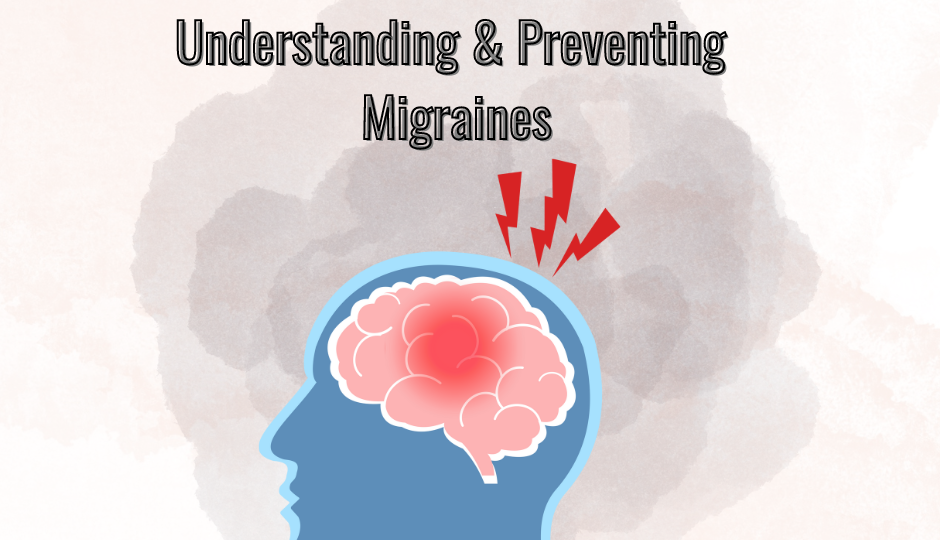Migraines
Migraines are more than just severe headaches; they are a debilitating neurological condition that affects millions of people worldwide. Characterized by intense throbbing or pulsing pain, often on one side of the head, migraines can also be accompanied by nausea, vomiting, and sensitivity to light and sound. Understanding the triggers and implementing preventive measures can significantly reduce the frequency and severity of migraines, improving the quality of life for those affected.
Understanding Migraines:
Migraines are complex and can vary widely from person to person. While the exact cause is still not fully understood, researchers believe that genetics and environmental factors play a significant role. Certain triggers can set off a migraine attack, such as:
Hormonal Changes:
Many women experience migraines around their menstrual periods due to fluctuations in estrogen levels.Stress:
Emotional stress, as well as physical stress, can trigger migraines in susceptible individuals.Food and Drink:
Certain foods and beverages, such as aged cheeses, processed meats, alcohol (especially red wine), and caffeine, can trigger migraines in some people.Sensory Stimuli:
Bright lights, loud noises, and strong smells can all trigger migraines or make them worse.Sleep Disturbances:
Both lack of sleep and oversleeping can trigger migraines.Weather Changes:
Changes in barometric pressure, temperature, and humidity can trigger migraines in some individuals.
Preventing Migraines:
While migraines cannot always be completely prevented, there are steps that individuals can take to reduce their frequency and severity:
Identify Triggers:
Keeping a migraine diary can help identify specific triggers. Once triggers are identified, individuals can take steps to avoid or minimize exposure to them.
Manage Stress:
Stress management techniques such as deep breathing, meditation, yoga, and regular exercise can help reduce the frequency of migraines triggered by stress.
Maintain a Regular Sleep Schedule:
Establishing a consistent sleep schedule, aiming for 7-8 hours of quality sleep each night, can help prevent migraines triggered by sleep disturbances.
Stay Hydrated:
Dehydration can trigger migraines in some individuals. Drinking plenty of water throughout the day can help prevent this.
Watch Your Diet:
Avoiding trigger foods and maintaining a healthy, balanced diet can help prevent migraines. It may also be helpful to eat regular meals and snacks to keep blood sugar levels stable.
Limit Caffeine:
While some individuals find relief from migraines by consuming caffeine, others find that it can trigger migraines.
Consider Supplements:
Certain supplements, such as magnesium, riboflavin (vitamin B2), and coenzyme Q10, have been shown to reduce the frequency and severity of migraines in some individuals.
Medication:
In some cases, healthcare providers may prescribe preventive medications to reduce the frequency and severity of migraines. These may include beta-blockers, anticonvulsants, antidepressants, or CGRP inhibitors.
Biofeedback and Relaxation Techniques:
Biofeedback and relaxation techniques, such as progressive muscle relaxation and guided imagery, can help individuals learn to control certain bodily functions and reduce the frequency and severity of migraines.
Seek Professional Help:
If migraines are significantly impacting your quality of life despite preventive measures, it’s essential to seek help from a healthcare provider who specializes in headache medicine. They can help develop a personalized treatment plan tailored to your specific needs.
In conclusion, while migraines can be challenging to manage, understanding the triggers and implementing preventive measures can significantly reduce their impact on daily life. By identifying triggers, managing stress, maintaining a healthy lifestyle, and seeking professional help when needed, individuals can take control of their migraines and improve their overall quality of life.

















